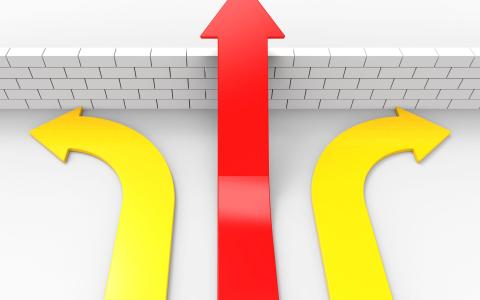
(TheStreet) - Top economists believe that inflation will stay persistent for longer and have pushed back their expectations for a Federal Reserve rate cut, according to a new survey by the National Association for Business Economics (NABE).
The NABE panel’s May 2023 outlook survey found that a majority of respondents believe that inflation as measured by the consumer price index will rise 3.3% from the last quarter of 2022 to the final quarter of 2023, up from the previous expectation of 3% in February. The panelists also pushed back their expectations of when the Federal Reserve will cut interest rates, with 59% of respondents forecasting that inflation will stay above the Fed’s target level until 2025 or later.
Regarding recession risks, only 7% of respondents believe that there is less than a 25% chance of the U.S. sinking into a recession this year.
Full Video Transcript Below:
J.D. DURKIN: Ken, a recent survey from the National Association for Business Economics finds that inflation may be a bit more deeply entrenched, be here to stay longer than previously thought. Help break down some of the reports and the findings on inflation. What should we know?
KEN SIMONSON: Yes, this is a quarterly report that the National Association for Business Economics has conducted for over 25 years among 45 professional forecasters. And they have pushed out the time that they think it will take before the Fed can start cutting rates, because they do see inflation being more persistent than they had when we surveyed them in February. On the other hand, they also think that a recession is a little further off, though still likely.
J.D. DURKIN: If inflation does stay persistently high. What kind of impact do you think this will have on economic growth overall?
KEN SIMONSON: Well, as you know, monetary policy works with long and variable lags. We've been hearing that ever since Milton Friedman formulated that 60 or 70 years ago. And so I do think it means that the Fed will hang tough on keeping its target rate where it is or even higher for longer. And that eventually will mean a slowdown in economic growth. It doesn't make a recession inevitable. It doesn't guarantee that the landing, if there is one, will be soft. But I think that it complicates the picture for where the economy is headed.
J.D. DURKIN: All right, Ken, and what are the odds, according to the survey, that the central bank will be able to stick a so-called soft landing?
KEN SIMONSON: Pretty low. As always, there's a range of opinion, but very few of them think that we will be able to avoid a recession. Only 7% of the respondents thought that the likelihood of recession was less than 25%
By Rebecca Mezistrano
May 25, 2023



